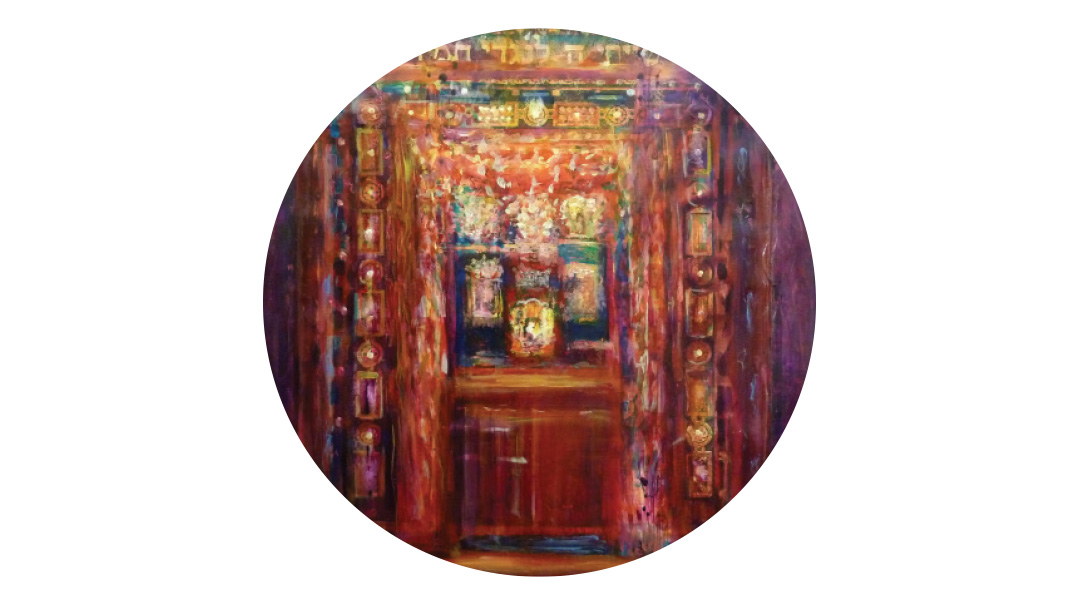Never-Ending

Our children's constant neediness shapes us

Why are our children so needy?
When a child enters the world, he’s completely helpless and needs his parents for his very survival. As he develops, he continues to have a multitude of physical, spiritual, social, and emotional needs, and depends on his parents to provide for those needs.
Chazal explain the pasuk (Tehillim 106:3), “Ashrei oseh tzedakah b’chol eis — Fortunate are those who do charitable acts all the time,” as referring to parents, since parents are engaged in doing acts of kindness for their children all the time, throughout the day and night. If a mother feels that her work is never-ending, she’s absolutely correct.
Did you ever wonder why Hashem fashioned a world in which children have so many needs for such an extended period of time? Hashem could have chosen to create children similar to animals who are independent shortly after they’re born. Why would Hashem want us to wake up numerous times in the middle of the night tending to a newborn or a sick child? Why would Hashem want us to devote so much time to preparing breakfast, lunch, and supper for our children? Why would Hashem want us to spend countless hours in the car driving our children to school, taking them to appointments, and more?
As we know, everything in the physical world has a parallel in the spiritual world.
Mirrored Reality
Perhaps Hashem designed a world in which parents are constantly giving to their children in order for us to gain an awareness that Hashem, our loving Parent, is constantly giving to His children.
We devote our lives to our children and care for their every need, yet our children are generally unaware and unappreciative, expecting it as a given. Perhaps Hashem wants us to contemplate that He, too, takes care of His children’s every need, yet we’re generally unaware and unappreciative, expecting it all as a given.
Our experience as parents has the potential to bring us to a deeper appreciation of the Ribbono shel Olam’s never-ending chasadim for us and to a deeper feeling of hakaras hatov.
I’m reminded of a story a relative of mine shared about her mother. It was during the very busy time of Pesach when neshei chayil throughout the world have a multitude of guests, are in the kitchen cooking and baking without end, and often feel overwhelmed.
A group of women were schmoozing together, bemoaning the fact they were working so hard and weren’t receiving enough help or appreciation.
“I’m slaving in the kitchen and the rest of the family isn’t helping enough,” one of the women complained. “I feel taken advantage of.”
“I’m in the kitchen day and night,” another said, “and no one seems to appreciate my efforts. I feel like a shmatteh, a rag.”
My relative’s mother turned to her friends and said, “I’m also in the kitchen day and night, without enough help, and without enough appreciation. But I don’t feel like a shmatteh… I feel like Hashem!”
Certainly, we should do whatever we can to train our family to help and to teach them to show appreciation. We desperately need both. But when we give and give and don’t receive the help or appreciation we’d expect, we have a choice to make. We can feel bitter and resentful, or we can use that experience to feel more grateful for all the good our Father in Heaven showers upon us every moment of our life, despite His children’s inadequate hakaras hatov.
Just Like Him
In addition to bringing us to a greater awareness of Hashem’s never-ending chesed, there’s another important benefit to taking care of our children’s needs.
The Gemara poses the question: Why did Hashem create poor people? It answers that the reason there are poor people is to give other people the merit of supporting them. We can assume that, similarly, the reason children have so many needs is in order to give parents the merit of taking care of those needs. Providing our children with their never-ending needs trains us to become givers, thereby earning tremendous merit. The home is essentially a school where parents learn to give.
When we constantly give to our children, we become similar to Hashem, the ultimate Giver. Hashem built the world with His chesed — olam chesed yibaneh — and we build our children’s world with our chesed.
Every day, women recite the brachah designed exclusively for women: she’asani kirtzono, thanking Hashem for creating us according to His will. One explanation for this brachah is that Hashem created women with a greater opportunity to do chesed, which is Hashem’s primary will. Hashem is the Creator and the Provider, and He gave us the opportunity to be creators and providers, like Him.
A man says “shelo asani ishah,” thanking Hashem that he can achieve closeness to Hashem through all the mitzvos he was commanded to do; he’s appreciative that he’s not a woman who has fewer mitzvos. The woman says “she’asani kirtzoni,” thanking Hashem that she can achieve closeness to Hashem through the never-ending chesed she performs; she is appreciative that she has greater opportunities to do chesed even though she lacks some mitzvos.
A World of Kindness
Rav Moshe Shapira ztz”l tells of an incident that happened to one of the gedolei hador, when he was a yungerman. The yungerman’s wife wasn’t home, and he was taking care of his children, when his uncle came to visit. The children were rambunctious, and weren’t easy to handle. The uncle said to his nephew, “You’re so calm and devoted to your children. When will they repay you for everything you do for them?”
The yungerman pondered the question and answered, “One day when they grow up and im yirtzeh Hashem follow in my ways, they’ll give me nachas. That will be my repayment.” Then he added, “I’ll be going to Yerushalayim this week, and I’ll ask the Brisker Rav your question.”
A few days later, the yungerman met with the Brisker Rav and asked him the question his uncle had posed to him.
“My son, this question is totally misplaced and is actually close to kefirah,” the Brisker Rav responded. “Hashem created the world based on chesed. Hashem’s chesed is totally for the sake of chesed; there’s nothing we can do to ‘repay’ Hashem.
“Raising children needs to also be an act of pure chesed and should be done without thoughts of repayment. Hashem gave us children to raise because the existence of the world depends on true chesed. Yes, we hope to get nachas from our children, but that’s a separate reward. That’s not a form of repayment.”
The yungerman said that the reaction of the Brisker Rav “shook him to the core and caused him to rethink his whole outlook” (Reflections and Introspection: Torah Insights of Hagaon Hagadol Rav Moshe Shapiro, by Moshe Antebi).
As we continue to give and give to our children, let’s contemplate Hashem’s kindness to us and be grateful to Him. And let’s recognize that our children’s never-ending needs provide us with never-ending opportunities to emulate Hashem’s selfless kindness and to fulfill our calling of upholding the world with acts of kindness.
(Originally featured in Family First, Issue 783)
Oops! We could not locate your form.






